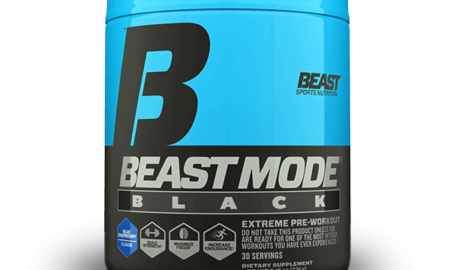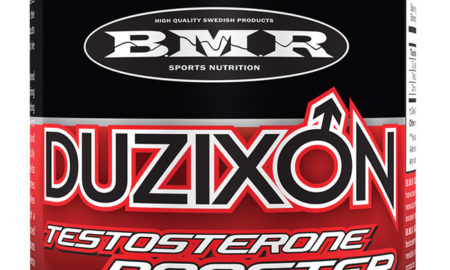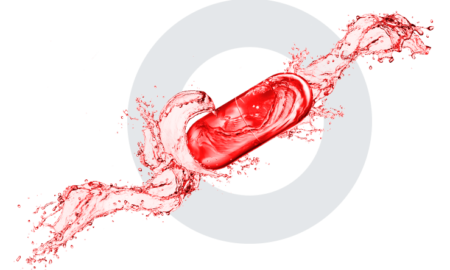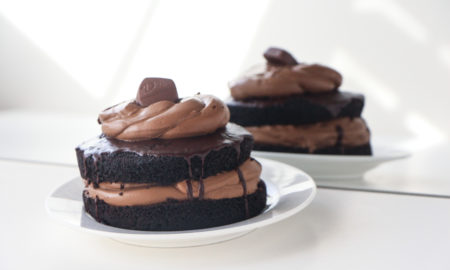The search continues for natural testosterone-boosting substances, which are of interest for a number of reasons. The government-mandated removal of all so-called pro-hormone supplements except DHEA in 2005 left a prominent gap in the sports supplement industry. Before the ban pro-hormone supplements had been popular and profitable. Many bodybuilders averse to using any anabolic steroid drug were not averse to using an over-the-counter “natural” supplement that could significantly raise testosterone counts in the body.
Unfortunately, that wasn’t the case with many pro-hormone supplements on the market, particularly the last generation of them. They were, in fact, old anabolic steroids that had been rejected for market release by the very drug companies that developed them because they either weren’t superior to existing drugs or had proved excessively toxic in animal studies. Few if any of the experimental steroids had ever been administered to human subjects—until being resurrected and sold as “pro-hormones.”
As it turned out, case studies published in various medical journals underscored the wisdom in the drug companies’ decisions not to market the experimental steroids. Liver toxicity and even cancer showed up in users of the supplements. The adverse reports eventually captured the attention of the United States Food and Drug Administration and led to the ban. Even so, demand for products that could boost testosterone didn’t wane, particularly with bodybuilders interested in adding muscle and strength.
Food supplement companies responded to the demand in two ways. Some simply ignored the new law and continued to sell discarded anabolics until the understaffed FDA could catch up and send a warning letter from its legal division. Others did R&D into natural compounds reputed to have testosterone-boosting properties.
In recent years a number of those supplements have been released to the market. The fact is, some supposedly natural T boosters have been around for years. An example is tribulus, a combination of herbs grown primarily in Bulgaria. Animal studies—and a few human-subject studies conducted in former Eastern-bloc countries—show that tribulis raised testosterone by stimulating the release of luteinizing hormone from the pituitary gland. That’s significant because LH is key to testosterone synthesis in the Leydig cells of the testes. When Western test labs analyzed tribulus in human subjects, the compound came up short. It not only failed to boost T but also raised estrogen counts—an effect desirable only if you’re seeking additional breast development and more subcutaneous bodyfat.
Another natural T booster is an amino acid analogue called D-aspartic acid. Studies say it ups T counts by 30 to 40 percent. Whether the increased T release does anything to promote gains in muscle mass and strength is another question. As far as I know, the substance hasn’t yet been tested in any legitimate study that involves hard-training athletes or bodybuilders. On the other hand, if the supplement works as advertised, a 40 percent boost in testosterone levels may be good for those who are naturally low in the hormone, such as most men over age 40. Still, that’s only speculative. In addition, there is the issue of long-term effects of taking D-aspartic acid—also not yet examined.
One alleged natural testosterone booster has already been incorporated in several popular bodybuilding supplements. Rubus coreanus is a fruit commonly used in food products in Korea. Studies with mice have shown that this fruit, also known as Korean bramble or Korean black raspberry, boosts testosterone in the mice by 750 percent. So some supplement companies rushed to include the stuff in their super supplements. Problem is, there isn’t a tiny shred of evidence that Rubus does the same thing for humans. Indeed, Koreans who eat foods containing it don’t have unusually high testosterone counts. If they did, you can bet it would have attracted the attention of Western scientists. While we’re at it, onion juice boosts testosterone by 314 percent in rats, and ginger extract doubles it. Again, though, no evidence that either substance does the same for humans. Adding onion juice to food supplements would likely lower sales anyway.
The most promising natural T boosters may be those derived from esoteric bush and herbal plants that grow naturally in the wilds of Africa. They’ve attracted attention because of their longtime reputations among the indigenous peoples of Africa as aphrodisiacs. Because among its other effects testosterone boosts libido, or sex drive, the thinking is that anything that boosts sex drive probably also raises testosterone. Examples of the botanical plants that are starting to show up in the literature include Bulbine natalensis, Fadogia agrestis and Massularia acuminata. Preliminary studies have suggested that they do seem to increase testosterone, but here come the caveats.
All the published studies have involved either animal subjects or in vitro—that is, test-tube—studies. The latter involve exposing isolated cells, usually rodent testicular cells, to extracts of the plant to see if the plant can spur testosterone release from the cells. No human studies proving their effectiveness have been published, but that hasn’t stopped aggressive companies from marketing several of the plant extracts, mainly to the bodybuilding market.
Market release is premature for a number of reasons. There is simply no proof that they actually work in healthy, exercising humans. Sure, indigenous Africans have used the plants for thousands of years to increase sex drive and activity, but sex is subjective and psychologically influenced, which is not the same as scientific evidence. Then you have the usual Internet forum evidence, with users raving about how much muscle they’ve added by using plant-based T-boosters. Funny, though, how so few of those online enthusiasts ever use their real names; a large majority turn out to be shills for companies selling the products.
Dosage is another concern. Typically, the doses used in animal studies are far larger than what goes into the supplements, whether because of the scarcity of the plant or the cost. An effective dose would involve either huge amounts of the plant extract or would be prohibitively expensive—not that the products are cheap anyway.
More problematic is the lack of both efficiency and safety standards. Just as those who used the last generation of pro-hormone supplements were human guinea pigs, so are those who take in untested plant extracts. If they’re lucky, nothing untoward will happen to their health, but that remains an unknown. Some rodent studies did reveal paradoxical effects when the animals got larger doses. Some larger doses led to a destruction of the animals’ Leydig cells, which would lower, not increase, testosterone output.
The latest African plant found to boost testosterone is Tulbaghia violacea, also known as wild garlic. It has a pungent garlic odor and grows naturally in South Africa, where it’s been used as an herbal remedy to treat such maladies as tuberculosis, asthma, esophageal cancer, gastrointestinal problems, colds, fevers and sinus headaches. The Zulus have used Tulbaghia as an aphrodisiac as well as a snake repellant for many years. As with other plants, excessive use has been associated with side effects, such as gastroenteritis, abdominal pain and inflammation.
Does it actually boost testosterone? A recent in vitro study sought an answer. Testicular cells taken from a mouse were exposed to an alcohol-based extract of Tulbaghia for four hours. The plant extract significantly increased LH-induced testosterone release. In other words, it accomplished what tribulis is supposed to do but doesn’t. Compared to a control isolated-cell group not exposed to the extract, the experimental mouse cells produced a 30 to 72 percent increase in testosterone release. Estrogen counts were not affected. The authors suggest several explanations for the results. One is that the extract encouraged conversion of cholesterol to testosterone by stimulating the activity of local enzymes involved in the process. Or the plant extract may be increasing the actions of LH in T synthesis by stimulating LH hormone receptors in cell membranes.
The next move for testing Tulbaghia should involve human subjects—and not just isolated cells. Preferably, athletes or bodybuilders would participate, but that isn’t likely to happen. The primary interest in testing new natural compounds for their effect on increasing testosterone is to identify an alternative for testosterone therapy, which present problems for some. If proved effective through human testing, the natural compound could treat men who have low testosterone due to aging but aren’t yet ready to resort to the drug therapy. If Tulbaghia fails to work with human testing, however, all is not lost. It is, after all, an effective snake repellant.
Reference
Ebrahim, M, et al. (2010). The effect of Tulbaghia violacea extracts on testosterone secretion by testicular cell cultures. J Ethnopharm. 132(1):359-61.
Editor’s note: Jerry Brainum has been an exercise and nutrition researcher and journalist for more than 25 years. He’s worked with pro bodybuilders as well as many Olympic and professional athletes. To get his new e-book, Natural Anabolics—Nutrients, Compounds and Supplements That Can Accelerate Muscle Growth Without Drugs, visit www.JerryBrainum.com. IM




















You must be logged in to post a comment Login